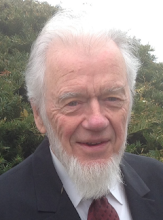Life ◈ Love ◈ Light ◈ Liberty: These are the “4-Ls” about which I wrote in my March 9 post. Today I am focusing on Life, the first of those four. Over the next few weeks, I will write about the other three.
Real
life is more than physical life. As I said in the March 9 post, the foundation of my emphasis on life
was Jesus’ words as recorded in the tenth chapter of the Gospel of John: “I
came that they may have life and have it abundantly” (v. 10, NRSV).
Having abundant life focuses on the quality
of life, not just its quantity. Physical life is something that people either
have or don’t have. That is, they are either alive or dead. But living
abundantly means living with meaning, purpose, and joy.
The
emphasis on life, real life, was prominent in the Christian Studies courses I conducted
at Seinan Gakuin University in Japan. In 1975, I taught a required course for
second-year Economics Department students. Horiuchi Akira-san was one of
the students enrolled in that class.
On
his 70th birthday in January, Horiuchi-san posted the
following comments (in Japanese) on Facebook: “When I was a second year
university student, a missionary teacher of Christian Studies said, "The
purpose of Christianity is to help people to have life and to have it
abundantly."
In a
personal exchange on Facebook Messenger, Horiuchi-san (whom I should
call sensei since he has been a Christian pastor for most of the years
since he finished his theological education in 1981) wrote, “I am who I am
today because of my encounter with you. Thanks.”
Real
life includes valuing and protecting physical life. Even though it is more
than physical life, having real life leads to more than just enjoying the
richness of one’s own life. It also seeks life for groups of people, robust
physical life as well as meaningful societal life.
This
generates opposition to war, to violence of all kinds, to capital punishment, to
ecological destruction, and to all exploitation and/or degradation of people
because of race, nationality, gender, sexual orientation, religion, or anything
else.
Conservative
Christians of the present have preserved the important emphasis of evangelicalism
on real life for individuals by faith in God through Jesus Christ, but so many have
largely failed to emphasize the equally important matter of helping marginalized
groups to have vigorous physical life also.
The
New Testament term eternal life is basically the same as what I call
real life. I have used the latter term because of the misunderstanding or
ambiguity of the word eternal, which was long expressed as everlasting
in English.
For centuries, the majority of Protestants (including most
Anglicans) read the King James Version of the Bible, which dates back to 1611.
Many of us older people memorized John 3:16 in the KJV:
For God so loved the world, that he gave his only begotten Son, that whosoever believeth in him should not perish, but have everlasting life.
That
was the basis for the widespread belief in unending life, which was generally understood
as life after physical death.
But
beginning with the American Standard Version, published in 1901, the Greek
words previously translated as everlasting life began to be translated
as eternal life. This became more widely the case after the Revised
Standard Version was published in 1952.
Bible
scholars increasingly began to emphasize that eternal, especially in the
Gospel of John, primarily refers to the quality of life, not its quantity.
Thus, eternal life is the type of life that we can have and enjoy now,
not just life after physical death.
Life
(real life) is the theme of Easter, which Christians around the world will
be celebrating tomorrow.
It
is because of the resurrected Jesus that all can receive new life = eternal
life through him. That is the life that Horiuchi-san received the year
after he heard about real life in my Christian Studies class in 1975.
His
kind words of gratitude were primarily for my sharing the Gospel of life with
him and his classmates, most of whom never accepted that message. He did and
that made all the difference.





